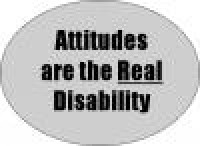'Put disability on the front page'
Will producers admit that they have never even considered casting a disabled anchor, looking out for a disabled"expert" or panelist or consciously widening the composition of a studio audience?
Media still oblivious of the concerns of the differently abled, writes TERESA REHMAN.

The last time he recalls a talk show on a regional satellite television channel aired from Guwahati on disability issues was on the occasion of World Disability Day. Disabled rights activist Armaan Ali rues that the disabled continue to remain an invisible minority in society as well as the regional media in the north-east. The scene is no better in the so-called national media, and chances are slim that many producers would admit that they have never even considered casting a disabled anchor, looking out for a disabled “expert” or panelist or consciously widening the composition of a studio audience.
In the past few years, the north-eastern region of India has witnessed a mushroom growth of local media – print, satellite television channels, and FM radio stations. But the local media are yet to be sensitized on how to deal with issues related to the disabled, the use of images, language and terminology related to disability, as well as the media's creation and underpinning use of disabled stereotypes.
In a bid to sensitize the media personnel about the various issues concerning the persons with disabilities including the laws and schemes in force and the role of the media thereof, the Disability law Unit: North East, Shishu Sarothi, an NGO organised an Orientation programme for media personnel on the Role of Media vis-a-vis Disability Sector in Guwahati. “The local media have to change the way they look at disability. They have to change from charity and human story to a development and rights issue. They need to put disability on the front page,” says Ali. He feels that the media is oblivious of the issues of the disabled, they do something only around World Disability Day and cover events only when invited. “Disabled people are under-represented both in terms of employment in the media and portrayal in the media. With little or no representation of disabled people in the media workforce, and with the tradition of the segregation of disabled people, attitudes and beliefs about disability have been left unchallenged,” he adds.
There are ways in which a story on the disabled can be depicted. For instance, showing a disabled person being fired for negligence or incompetence would be a positive depiction precisely because it would challenge an employer’s often quoted reason for not hiring disabled people in the first place – the assumption that you can’t fire disabled people without getting into legal trouble for discrimination. Therefore, an orientation programme for media personnel was an attempt to fill the gap.
In fact, the Broadcasting and Creative Industries Disability Network (BCIDN) based in London, United Kingdom, had formulated some guidelines: increase the presence of disabled people on-air and on-screen, increase the number of disabled people in all areas of the workforce, increase access to services on and off-air, and ensure access to all buildings. Disability Law Unit – North East (DLU – NE) advocates the rights of persons with disabilities through legal awareness, litigation, and legal advocacy. It provides legal assistance and information to people from all over the north-east region. DLU – NE seeks to empower its stakeholders by following a rights-based approach to disability. From numerous awareness programmes, to lobbying for policy changes, to litigating in cases of violation of rights, DLU - NE has had considerable impact in the region. Ali tried to sensitize the media. “Media”, he said, “can play a significant role in creating awareness, and sensitizing and mobilizing the community at large on the need to employ a rights-based approach vis-a-vis persons with disabilities and in bringing to the fore instances of violations of rights of persons with disabilities”.
Journalist Prabal Das stressed the need for the NGOs working in the sector to collect relevant data and share it with the media at regular intervals so that the same could be highlighted. All stakeholders, he said, should work in tandem with the media to effectively enable them to report the issues important for those with disabilities. A compilation on the role of media vis a- vis disability issues, prepared by the DLU-NE, was also distributed among the participants. There are many issues the media can deal with. Examples of denial of right to education in respect of children with disability in the various districts of Assam, inaccessible public places in and around Guwahati, and lack of empathy of various authorities in implementing the laws and schemes in respect of persons with disabilities.
The programme turned to be an eye-opener for many of the participants who agreed that disability issues needed to be effectively covered by the media regularly and were of the view that such programmes would go a long way in forging a bond between the disability sector and the media, and more such programmes ought to be conducted. Broadcasters all over the world are now conscious of the importance of ensuring a mix of gender and race on-air and on-screen. The regional media too should emulate these principles and should not be driven merely by commercial interests and TRPs.
(Teresa Rehman is a journalist based in north-east India and can be reached at www.teresarehman.net)Teresa Rehman Journalist and Media Consultant Writer, Reuters AlertNet Climate http://www.teresarehman.net http://teresarehman.blogspot.com http://thesanitationscribes.blogspot.com